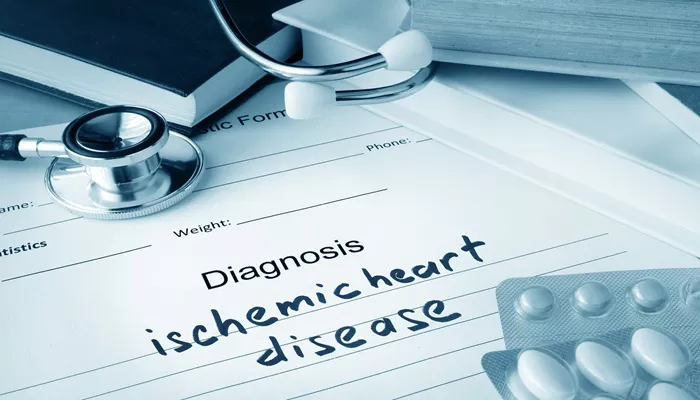High blood pressure, or hypertension, is a prevalent condition that significantly impacts cardiovascular health. It is often referred to as a “silent killer” because it typically presents no symptoms until serious complications arise. Among these complications, ischemic heart disease (IHD) stands out as one of the most critical and life-threatening conditions associated with prolonged hypertension. This article explores how high blood pressure contributes to the development of ischemic heart disease, emphasizing the underlying mechanisms and the importance of effective management.
The Prevalence of High Blood Pressure
High blood pressure affects approximately one in three adults in the United States, with many individuals remaining unaware of their condition due to its asymptomatic nature. According to the American Heart Association, hypertension is defined as having a systolic blood pressure (SBP) greater than 130 mm Hg or a diastolic blood pressure (DBP) exceeding 80 mm Hg. The global burden of hypertension is staggering, contributing to millions of deaths each year from cardiovascular diseases, including ischemic heart disease.
What Is Ischemic Heart Disease?
Ischemic heart disease occurs when blood flow to the heart muscle is reduced, leading to insufficient oxygen supply. This condition can result from various factors, but chronic high blood pressure is a significant contributor. Over time, high blood pressure can lead to atherosclerosis, where plaque builds up in the coronary arteries, narrowing them and restricting blood flow. This restriction can cause chest pain (angina), heart attacks, and other serious complications.
How High Blood Pressure Causes Ischemic Heart Disease
Understanding the mechanisms by which high blood pressure leads to ischemic heart disease involves several key processes:
Endothelial Dysfunction: High blood pressure damages the endothelium, the thin layer of cells lining the blood vessels.
This damage impairs the ability of blood vessels to dilate and increases vascular resistance. As a result, the heart must work harder to pump blood through narrowed arteries.
Increased Myocardial Oxygen Demand: Hypertension increases the workload on the heart. The left ventricle (the heart’s main pumping chamber) thickens in response to this increased demand, a condition known as left ventricular hypertrophy (LVH). LVH further elevates oxygen requirements for the heart muscle, which may not be met if coronary arteries are narrowed due to atherosclerosis.
Atherosclerosis Progression: Chronic high blood pressure accelerates the process of atherosclerosis. The increased shear stress on arterial walls from elevated blood pressure promotes plaque formation and growth within the coronary arteries.
Over time, this leads to significant narrowing and potential blockage of these arteries.
Increased Risk of Thrombosis: High blood pressure can lead to changes in blood flow dynamics that increase the likelihood of clot formation within narrowed arteries. If a plaque ruptures, it can trigger a thrombus (blood clot) that may completely obstruct blood flow, resulting in a heart attack.
Inflammation: Hypertension is associated with increased levels of inflammation in the body. Inflammatory processes contribute to endothelial dysfunction and promote plaque instability within coronary arteries. This instability heightens the risk of acute cardiovascular events.
Risk Factors for Ischemic Heart Disease
While high blood pressure is a primary risk factor for ischemic heart disease, several other factors can exacerbate its effects:
Diabetes Mellitus: Diabetes significantly increases cardiovascular risk and often coexists with hypertension.
High Cholesterol Levels: Elevated levels of low-density lipoprotein (LDL) cholesterol contribute to plaque formation in arteries.
Smoking: Tobacco use damages blood vessels and accelerates atherosclerosis.
Obesity: Excess body weight increases strain on the heart and contributes to hypertension.
Sedentary Lifestyle: Lack of physical activity can worsen both hypertension and overall cardiovascular health.
The Dose-Response Relationship
Research indicates a direct dose-response relationship between systolic blood pressure levels and ischemic heart disease risk. For instance, an SBP of 120 mm Hg is associated with a 39% increased risk compared to 100 mm Hg; this risk escalates significantly at higher levels. At an SBP of 165 mm Hg, the risk increases by approximately 348%. This underscores the importance of maintaining optimal blood pressure levels throughout life.
Management And Prevention Strategies
Given the strong link between high blood pressure and ischemic heart disease, effective management strategies are crucial:
Regular Monitoring: Individuals should have their blood pressure checked regularly to identify hypertension early.
Lifestyle Modifications:
Diet: A diet low in sodium and rich in fruits, vegetables, whole grains, and lean proteins can help lower blood pressure.
Exercise: Regular physical activity strengthens the heart and helps maintain healthy body weight.
Weight Management: Achieving and maintaining a healthy weight reduces strain on the heart.
Medications: Antihypertensive medications may be necessary for individuals unable to control their blood pressure through lifestyle changes alone. These may include diuretics, ACE inhibitors, beta-blockers, or calcium channel blockers.
Education and Awareness: Increasing public awareness about hypertension’s risks can encourage individuals to seek regular check-ups and adhere to treatment plans.
Addressing Comorbidities: Managing conditions such as diabetes and hyperlipidemia is essential for reducing overall cardiovascular risk.
Conclusion
High blood pressure is a significant modifiable risk factor for ischemic heart disease. Its impact on cardiovascular health is profound due to its role in promoting endothelial dysfunction, increasing myocardial oxygen demand, accelerating atherosclerosis progression, enhancing thrombosis risk, and inducing inflammation. Effective management through lifestyle changes and medical interventions can significantly reduce the risk of developing ischemic heart disease among individuals with hypertension.
Related topics:
- How Long Can You Live with Mild Mitral Valve Regurgitation?
- What Are The Symptoms of A Partially Blocked Heart Artery
- What Causes Heart Bypass Surgery?

